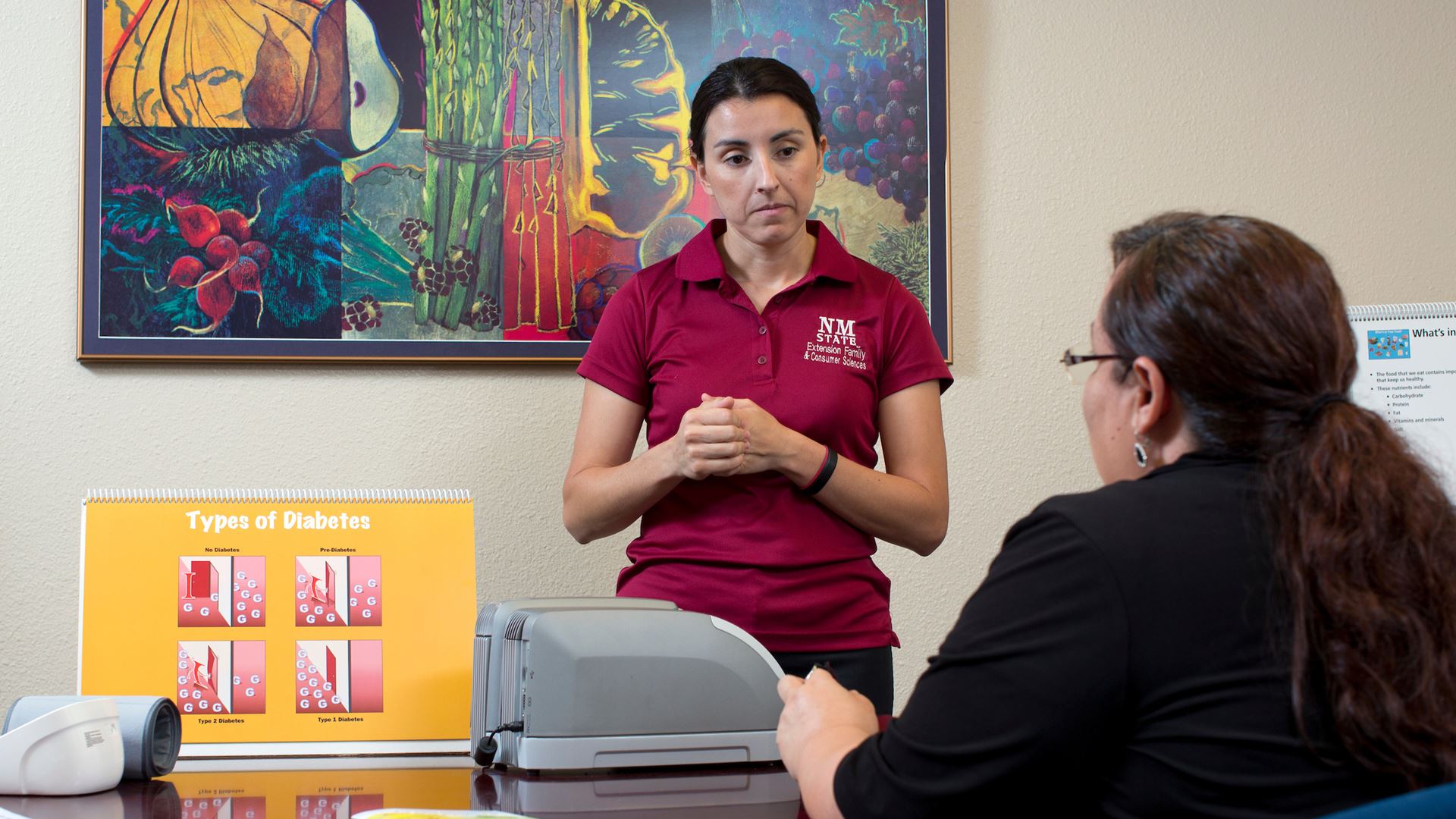With funding from the Paso del Norte Health Foundation, an New Mexico State University Cooperative Extension Service program helps adults with diabetes, prediabetes or at risk for developing diabetes.
The On the Road to Living Well with Diabetes program teaches participants how to manage glucose levels better and reduce the complications that may result from uncontrolled diabetes. Through a 2021 grant, the program reached more than 75 participants and trained three new community health workers.
“The project not only creates awareness about important tests in order to help prevent complications of uncontrolled diabetes for those diagnosed with Type 2 diabetes. It has helped individuals identify their risk of diabetes and seek a health care provider for further evaluation,” said Lourdes Olivas, On the Road to Living Well with Diabetes program manager and Extension associate.
In November, the program will expand and collaborate with the Otero County Cooperative Extension Service and Gerald Champion Regional Medical Center in Alamogordo, New Mexico. Thanks to a new grant from Paso del Norte Health Foundation, the program plans to train at least three new individuals.
On the Road to Living Well with Diabetes program participants learn about the five most important test for diabetes; learn how to discuss test results with health care providers; learn how to prepare healthy meals; and learn why it’s important to be physically active. One of the program’s objectives is to prevent complications such as kidney failure, amputations or vision loss for those living with Type 2 diabetes.
The On the Road to Living Well with Diabetes program was created in the early 2000s, and prior to 2008 the target audience was individuals with Type 2 diabetes. As part of the program, participants take a pre- and post-A1C test, which determines average glucose levels over a three-month period. The test gives participants an indication of how they are doing, and doctors started using it for diagnosis. The program then expanded to those at risk.
“We have had participants that were out of range and would make an appointment with a health care provider and end up diagnosed with Type 2 diabetes,” Olivas said. “Without them becoming aware by participating in our program, who knows how long they would have gone not knowing.”
In 2012, NMSU Extension received a grant from the Joslin Diabetes Center, with a portion of the grant aimed at innovation in the program’s distribution.
“This is when we started to train promotoras/community health workers to deliver the program. They were trained on administering A1C and blood pressure tests, along with the curriculum,” Olivas said. “Since then, our recruitment numbers along with retention increased, plus participants making an appointment with a health care provider increased as well.”
To learn more On the Road to Living Well with Diabetes, visit https://diabetes.nmsu.edu/english/livingwell.html.
-30-
CUTLINE: Lourdes Olivas, On the Road to Living Well with Diabetes program manager and New Mexico State University Cooperative Extension Service associate, discusses diabetes awareness. NMSU’s Extension program, On the Road to Living Well with Diabetes, helps adults with diabetes, prediabetes or at risk for developing diabetes. (NMSU photo)

